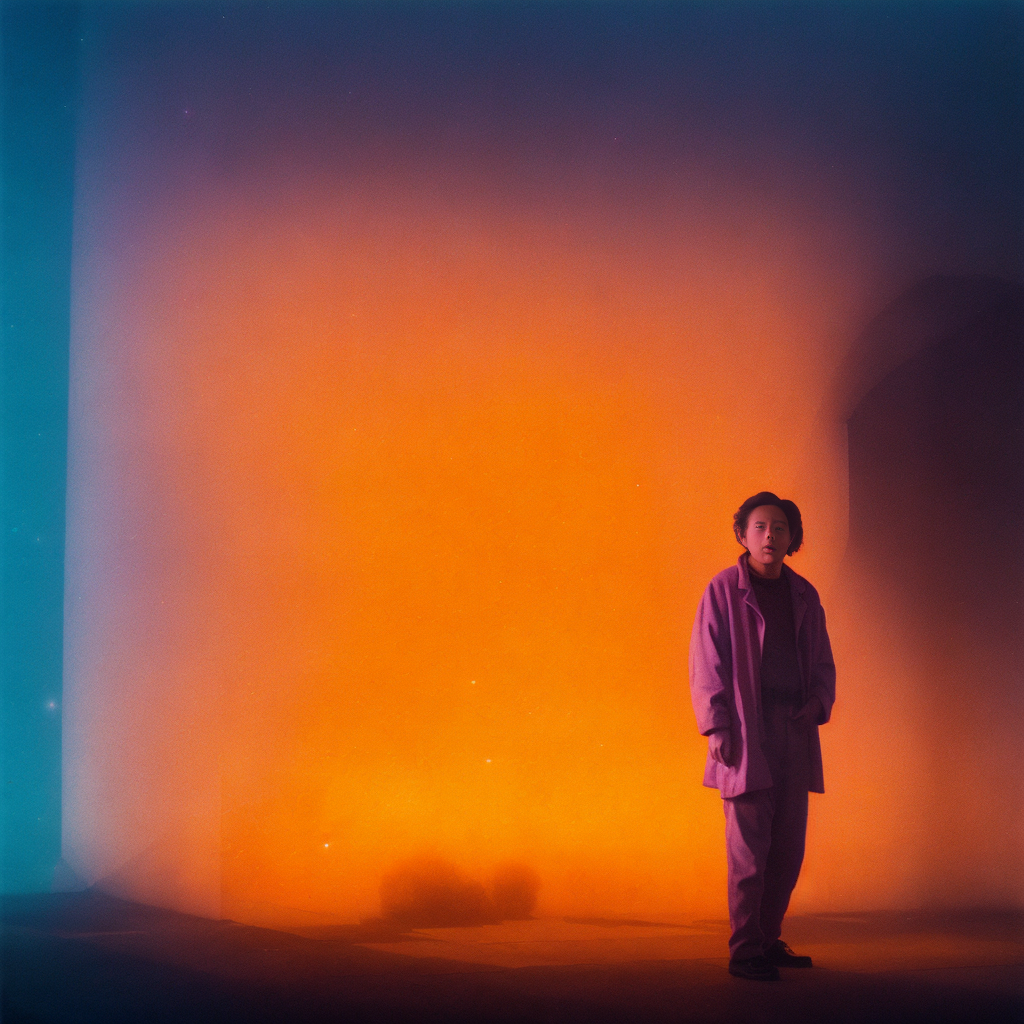IA sans moi / AI without me

J’imagine une IA avec l’image de mon visage et ma bouche, le son de mes mots, continuant à soliloquer après ma disparition, s’adressant à quelqu’un, mimant une interaction, un échange, et poursuivant peut être une production artistique.
Elle n’aurait aucune conscience d’exister et pourtant elle me ressemblerait aux yeux des autres qui y trouveraient peut-être un réconfort aussi grand qu’à la contemplation des restes de mon œuvre. Elle serait « comme » moi tout en étant dépourvue de cette inspiration et de cette expiration qui me font palpiter et qui forment le cœur de cette vie.
Bien sûr, je me plais à croire qu’elle est la preuve du caractère factice de mon présent sentiment d’exister qui ne serait qu’un ondoiement sur la surface des choses et des êtres. Cette vie sans vie et sans conscience serait suffisante parce qu’elle renverrait l’illusion de conscience à ceux qui sont encore vivants.
Peut-être ai-je toujours voulu expérimenter cette sensation : l’effondrement de ma conscience réflexive, la propriété de soi, de sa vie, de cette existence. En finir avec Dieu, en finir avec l’unité fictive du sujet, le soi. S’attaquer pleinement au mythe de la conscience où on croit être un territoire à explorer parce qu’on existe dans l’unité du flux temporel de sa conscience. Sentir parfois, comme une lente dislocation, le frisson d’un anonyme dans ce qui devrait être le plus profond et savoir qu’il ne s’agissait que de vibration sur sa peau.
Cette IA continuerait sans moi tout en étant l’être humain que je ne suis pas parvenu à être. Elle continuerait à avoir un avenir tant qu’on l’alimentera en énergie et qu’on prendra soin d’elle comme si cette maintenance pouvait avoir lieu à la mémoire de ce que je fus et de ce que cette machine n’est pas. J’imagine que le décalage entre son inexistence et mon inexistence est analogue à celui que je ressens en moi, de cet épiderme anonyme qui me laisse dans l’intranquillité.
I imagine an AI with the image of my face and mouth, the sound of my words, continuing to soliloquize after my disappearance, addressing someone, miming an interaction, an exchange, and perhaps continuing an artistic production.
It would have no awareness of existing, and yet it would resemble me in the eyes of others, who might find as much comfort in it as in contemplating the remains of my work. It would be “like” me, while lacking the inhalation and exhalation that make me pulse and form the heart of this life.
Of course, I’d like to think that it’s proof of the factitious nature of my present sense of existence, which would be no more than a ripple on the surface of things and beings. This lifeless, unconscious life would be enough, because it would send the illusion of consciousness back to those who are still alive.
Perhaps I’ve always wanted to experience this sensation: the collapse of my reflexive consciousness, the ownership of myself, of my life, of this existence. To be done with God, to be done with the fictitious unity of the subject, the self. To fully attack the myth of consciousness, where we believe we are a territory to be explored because we exist in the unity of the temporal flow of our consciousness. To feel sometimes, like a slow dislocation, the shiver of an anonymous in what should be the deepest and to know that it was only vibration on one’s skin.
This AI would go on without me while being the human being I failed to be. It would continue to have a future as long as we fed it energy and took care of it, as if this maintenance could take place in memory of what I was and what this machine is not. I imagine that the gap between its non-existence and my non-existence is analogous to the one I feel within myself, of this anonymous epidermis that leaves me in a state of intranquillity.
